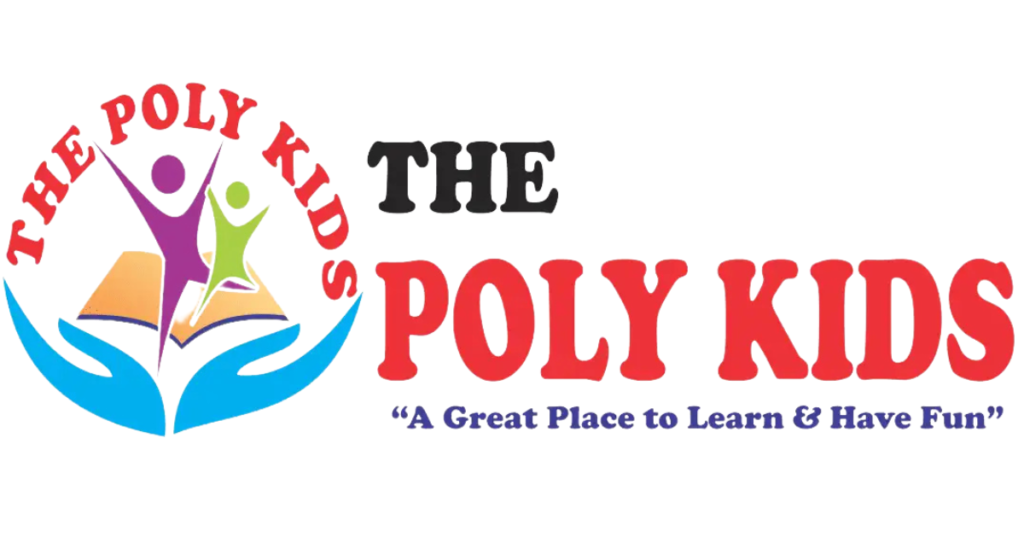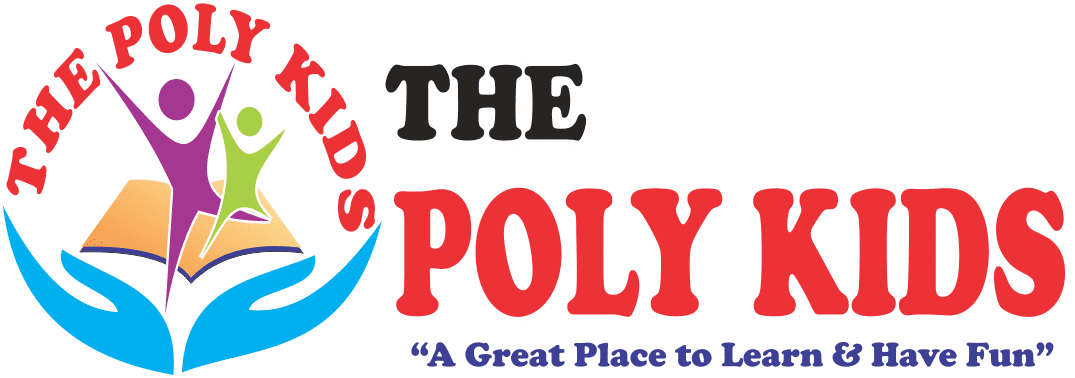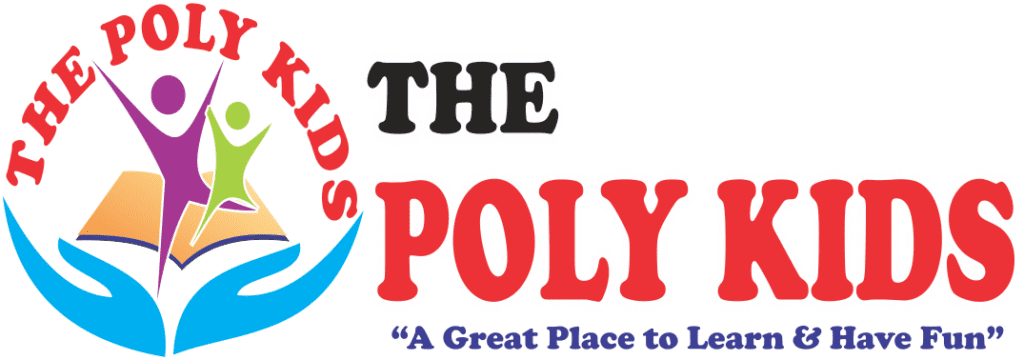How Play-Based Learning Shapes Young Minds
In today’s fast-paced world, traditional education methods are rapidly evolving to accommodate the needs of young learners. One approach that has proven to be both effective and enjoyable is play-based learning. Unlike conventional learning that relies heavily on rote memorization, play-based learning emphasizes exploration, creativity, and experiential activities. At The Poly Kids, this method is an integral part of the curriculum, aiming to provide a holistic and joyful learning experience. This article delves into the benefits of play-based learning and why it’s a cornerstone of early childhood education at The Poly Kids.
1. Enhances Cognitive Development
The first and foremost benefit of play-based learning is its profound impact on cognitive development. When children engage in play, they naturally develop problem-solving skills, critical thinking, and language abilities. At The Poly Kids, a variety of activities such as puzzles, storytelling, and interactive games are used to stimulate cognitive growth.
Key Activities and Benefits:
- Puzzle Solving: Activities like jigsaw puzzles help children develop logical thinking and pattern recognition.
- Storytelling and Role Play: By engaging in storytelling and pretending to be different characters, children expand their vocabulary, improve comprehension, and enhance memory retention.
- Building Blocks and Construction Play: Such activities boost spatial awareness, planning skills, and creativity.
Real-Life Example:
During a session at The Poly Kids, children were encouraged to build a miniature city using blocks. As they constructed roads, bridges, and buildings, they discussed different roles like engineers, builders, and planners. This activity not only made learning fun but also integrated lessons on cooperation, problem-solving, and communication—demonstrating the benefits of play-based learning effectively.
2. Fosters Social and Emotional Growth
Social skills are essential for children’s overall development, and one of the significant benefits of play-based learning is its ability to cultivate these skills. Group play encourages children to share, cooperate, and understand different perspectives. At The Poly Kids, activities like team games, role-playing, and group storytelling sessions help children develop empathy, patience, and effective communication.
Social and Emotional Benefits:
- Emotional Expression: Through role play and art, children learn to express their feelings constructively.
- Team Activities: Tasks that require teamwork enhance children’s ability to collaborate and resolve conflicts amicably.
- Building Self-Esteem: Completing tasks successfully during play boosts confidence and self-worth.
Insightful Observation:
Teachers at The Poly Kids often observe children comforting each other during group activities, showcasing how the benefits of play-based learning extend to nurturing compassion and empathy among young learners.
3. Encourages Physical Development
Play-based learning isn’t just about intellectual and social growth; it also plays a vital role in physical development. Activities such as outdoor games, dance, and obstacle courses at The Poly Kids help improve coordination, balance, and overall fitness. The benefits of play-based learning in this area are immense, as physical play also supports brain development and reduces stress.
Key Physical Activities:
- Outdoor Sports: Games like tag, relay races, and ball games enhance motor skills, hand-eye coordination, and endurance.
- Dance and Movement: Activities involving music and dance improve rhythm, flexibility, and spatial awareness.
- Sand and Water Play: Handling different textures and materials boosts sensory development and fine motor skills.
Practical Example:
A weekly “Obstacle Challenge” at The Poly Kids encourages children to crawl, jump, and balance, making physical exercise an enjoyable experience. This approach highlights one of the crucial benefits of play-based learning—the seamless integration of learning and play.
4. Sparks Creativity and Imagination
Creativity is the foundation of innovation. The Poly Kids recognizes this by integrating art, music, and imaginative play into its curriculum. The benefits of play-based learning in enhancing creativity are significant, as children who engage in creative play show higher levels of problem-solving and adaptability.
Creative Play Activities:
- Arts and Crafts: Painting, drawing, and crafting help children express their emotions and ideas visually.
- Musical Play: Singing, dancing, and playing instruments develop auditory skills and creativity.
- Imaginative Play: Role-playing scenarios such as running a market or exploring space enable children to expand their imagination.
Illustrative Example:
During a “Mini Entrepreneurs” activity, children at The Poly Kids set up mock shops, deciding prices, and negotiating with peers. This not only made them more confident but also demonstrated the benefits of play-based learning in fostering creativity and critical thinking.
5. Builds Independence and Confidence
Play-based learning empowers children to make choices, take risks, and manage outcomes—key elements in building independence and confidence. At The Poly Kids, children are encouraged to select activities based on their interests, fostering a sense of ownership and responsibility. The benefits of play-based learning here include developing decision-making skills and resilience.
Ways It Builds Confidence:
- Choice-Based Learning: Allowing children to choose activities enhances decision-making abilities.
- Problem-Solving Tasks: Challenges such as puzzles or strategy games teach perseverance and adaptability.
- Positive Reinforcement: Encouragement from teachers helps children build self-esteem and a positive self-image.
Real-World Impact:
A child who once hesitated to speak in group settings at The Poly Kids began leading team activities confidently, showcasing how the benefits of play-based learning translate into real-life skills.
6. Prepares for Formal Education
One of the often-overlooked benefits of play-based learning is its role in preparing children for formal education. Through structured and unstructured play, children learn to follow instructions, manage time, and develop a love for learning. The curriculum at The Poly Kids balances academics with play, ensuring a smooth transition to primary school.
Preparation Techniques:
- Structured Play: Activities with rules teach discipline and focus.
- Language and Literacy Games: Rhyming games and storytelling improve language skills.
- Math Through Play: Counting games and puzzles introduce basic math concepts.
Long-Term Benefits:
Children exposed to play-based learning adapt more quickly to school routines and exhibit greater curiosity and enthusiasm for learning. This underscores the holistic benefits of play-based learning in early childhood education.
Conclusion
At The Poly Kids, play-based learning isn’t just an educational method; it’s a philosophy that prioritizes joy, curiosity, and holistic growth. The benefits of play-based learning—from cognitive and social development to fostering independence and creativity—make it an indispensable part of early education. For parents seeking an environment that balances fun with foundational learning, The Poly Kids offers a nurturing and dynamic experience.
Choosing the right path for your child’s early education is a significant decision. Understanding the profound benefits of play-based learning can make that choice clearer and more confident. At The Poly Kids, the journey of joyful and meaningful learning awaits!


